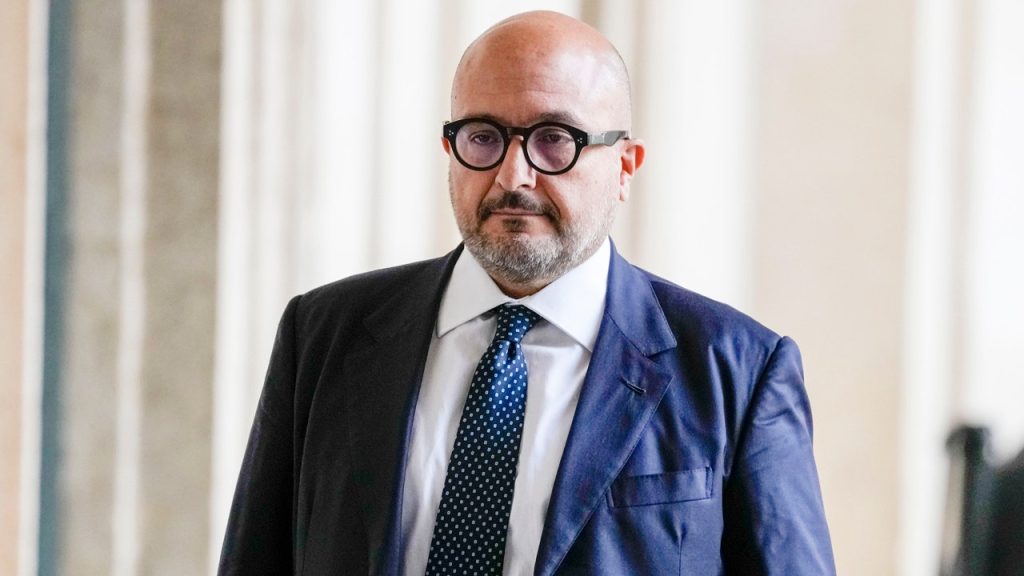Italy’s Culture Ministry has banned the Minneapolis Institute of Art from loaning works of art following a dispute over an ancient marble statue believed to have been looted from Italy almost half a century ago. The dispute began in March 2022 when an Italian court ruled that the Minneapolis museum was irregularly in possession of the Stabiae Doriforo, a Roman-era copy of The Doryphoros of Polykleitos, an ancient Greek sculpture. Italy claims that the sculpture was looted in the 1970s from an archaeological site at Stabiae, an ancient city close to Pompeii that was also covered by lava and ashes when Mount Vesuvius erupted in A.D. 79.
A spokesman for Italy’s Culture Ministry confirmed the ban on Wednesday. In February 2022, Italian prosecutors issued an international warrant for the artwork to be impounded and returned. The U.S. museum, which bought the statue in 1986 for $2.5 million, said it was purchased from art dealer Elie Borowski and imported into the United States. The museum has always acted responsibly and proactively with respect to claims related to its collection, but has declined to transfer the work where proof has not been provided, as well as where it has evidence reasonably demonstrating that a claim is not supported.
In 1984, while the work was on display in a German museum, Italy initiated a legal proceeding to claim it. The claim was denied in 1986. The museum asserted that the sculpture has been publicly displayed and extensively published since it was purchased. The ban on loans imposed by Italy is considered contrary to decades of exchanges between museums, according to the Minneapolis Institute of Art. The museum believes that the media is not an appropriate forum to address unproven allegations surrounding the origins of the Doryphoros, and remains firm in its stance against transferring the artwork without sufficient evidence.
The Minneapolis museum expressed disappointment with Italy’s decision to ban loans of works to the institution, citing years of collaboration and exchange between museums. Despite the ban, the museum maintains that it has acted responsibly in addressing claims related to its collection and stands by its decision not to transfer the disputed sculpture without sufficient evidence. The museum purchased the statue in 1986 for $2.5 million from an art dealer and imported it into the United States, where it has been publicly displayed and extensively published. Italy has issued an international warrant for the statue to be impounded and returned, but the museum is requesting proof of the allegations before taking action.
Italy’s Culture Ministry has banned loans of works to the Minneapolis Institute of Art following a dispute over an ancient marble statue believed to have been looted from Italy almost half a century ago. The statue, known as the Stabiae Doriforo, is a Roman-era copy of The Doryphoros of Polykleitos, an ancient Greek sculpture. Italy claims that the statue was looted in the 1970s from an archaeological site at Stabiae, an ancient city close to Pompeii that was covered by lava and ashes when Mount Vesuvius erupted. The museum purchased the statue in 1986 for $2.5 million from an art dealer and imported it into the United States, where it has been publicly displayed and extensively published.
Despite the ban on loans imposed by Italy, the Minneapolis Institute of Art is standing by its decision not to transfer the disputed sculpture without sufficient evidence supporting the allegations of looting. The museum has always acted responsibly and proactively in addressing claims related to its collection, and believes that the media is not an appropriate forum to address unproven allegations. Italy initiated a legal proceeding to claim the statue in 1984 while it was on display in a German museum, but the claim was denied in 1986. The museum remains firm in its stance against transferring the artwork without sufficient proof, and is requesting evidence to support the allegations before taking any further action.


